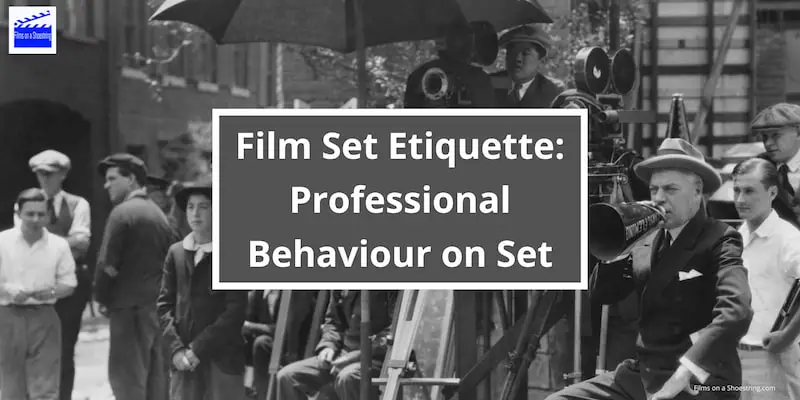Identifying your casting type and understanding why the actor type is used by casting directors is crucial to launching your acting career.
If you can identify an appropriate casting type or two, and make sure your headshots and showreel accurately reflect your actor type, you’ll find better success being picked up by acting agencies and auditioned by casting directors.
What is the Actor Type?
Casting directors get a script breakdown from the director and producers, from which a list of characters are made. They then audition and book actors whose actor type means they are a good fit to play that role convincingly.
Physical appearance is crucial, but it’s also more than that.
Whether you can sing, dance, play musical instruments, are a comedian, or display the bursting energy of Jim Carey may also help you find a specific type of actor role you’ll be booked for over and over again.
What are Common Actor Types?
Sometimes acting roles demand something off the beaten track, but common actor types dominate most film and TV production.
List of Common Actor Types for Adults
- Leading man
- Leading lady
- Reluctant hero
- Funny best friend
- Girl next door
- Hot blonde
- Angry old man
- Nasty boss
- Nice boss
- Drug addict/thief
- Mafia
- Gangster girlfriend
- Mother
- Older father
- Grandparent
- Dumb jock
- Ethnic-relevant roles
- LGBTQ+
- Homeless person
- Barman
- Grocery Store owner/till attendant
Common Actor Types for Child Actors
Even a child actor gets cast according to common types of characters in tv shows, film, and theatre productions.
- Underdog hero
- Funny best friend
- Swot
- Nerd
- Clumsy kid
- Bully
- Bully’s henchmen/best friends
- Overweight kid
- Rich kid
Identify Your Casting Type
Start by examining your physical appearance.
What do you look and sound like to other people?
Take note in particular of
- age (do you look younger or older?)
- gender
- height
- body shape
- ethnicity (diverse casting now emerging, but some roles require authenticity)
- attractiveness (could you realistically be an actor model?)
- hair style
- teeth
- tattoos/piercings etc
- anything unusual about your appearance
- voice pitch
Also take into account your personality traits, and additional skills.
If you’ve already been cast in low/no budget short films or attended auditions with a casting director, you’ll probably already know what roles other people see you in.
If not, ask your family, friends, acting class teachers and students, or even one of the facebook groups for actors and filmmakers, and listen carefully and dispationately to the answers.
Don’t lead people to say what you want to hear, because that’s not the point of the exercise. If people pick out a different type than you thought, spend time reflecting on that.
Everytime you watch a play, film, or favourite TV shows, look beyond the leading man or woman and work out what role you could have played which the audience would have accepted as authentic casting.
Is there a role you could play if you tweaked something about your appearance? So, for example, if your headshots had a grunge aesthetic, could you play a street drug dealer? Or if you ditched the blue hair for brunette, could your young looking face make you the high school student geek girl?
Age Range for Casting Type
Most professional actors will have an age range somewhere around their real age, with maybe five or ten years either way.
But if you are twenty four, tall and broad, with a mature face, you aren’t suitable to play a 16 year old school student. However, if you are twenty four, of a diminuative stature, with a young face, you might be better placed to play a 16 year old student rather than a duty solicitor.
Be realistic about this. Ask your teacher and fellow students at acting class, and listen to the feedback of your acting agent.
Remember that your age range for casting will change as you get older, which may affect your actor type and the types of roles you’re right for.
Casting Type Headshots & Showreel
All professional actors use headshots and showreel to show casting directors what they look like and can do, in the hope they are called into the audition room.
Casting directors are often looking at hundreds, or even thousands, of headshots and showreels submitted for casting calls, and can only invite in a limited number of actors for a casting.
So your headshot and showreel need to show the casting directors in just a few seconds that you can play that role you’ve been submitted for.
If your primary headshot looks against character type, they are straight on to the next candidate.
It’s therefore a good idea to get headshots showing you in clothing and hairstyles that suggest the types of roles you’d be good for. Then make sure your primary image fits the casting brief for each individual casting call.
Your headshot won’t have actor props, but instead think about what you are wearing and how your hair is styled.
So, for example, if you see yourself as a solicitor for a crime drama, you don’t need a pen or laptop in the headshot, but you do want to be well groomed and wearing a professional suit jacket. The costume department will provide an outfit if you get cast, but the point of the suit jacket in the headshot is to show the casting director that your casting types include smart solicitor, and show them in a split second that you match the character breakdown.
Hopefully the casting director will then invite you in for a casting, at which point you think very carefully about your casting type when choosing what to wear to an audition.
Typecasting
Typecasting happens when an actor is only cast in one specific type of role. So, for example, only ever as a cop, or a criminal.
If actors are typecast, it means they only get considered for castings for that specific type of role.
This can be a problem if you are a successful actor with ambition to play different types of roles. Continuing to train, learn and develop acting techniques, and find alternative ways of being cast against type will help you avoid being typecast, especially if you have limited experience beyond one type of character.
But for many working actors, typecasting means a steady stream of paid acting work. They build up a resume of one actor type of roles, working on projects with increasingly large budgets and names.
So typecasting can be a positive or a negative reality, and the experience of typecasting will be different for each actor.
Actor Types and Your Casting Type
As you can see, actor types are important for helping the casting director and their team quickly choose actors to audition for each character breakdown.
They receive huge numbers of submissions, so by knowing your casting type and making sure your headshots and showreel reflect this gives you a greater chance of reaching the casting room.
Then it’s time for your talent to shine, so you win the role.







